The Centers for Medicare and Medicaid Services (CMS) on Monday issued a proposed rule for establishing a Medicare Part B benefit and payment bundles for opioid use disorder (OUD) treatment services in opioid treatment program (OTP) settings and new HCPCS codes and bundled rates for office-based treatment of OUD.
OTP Bundled Payment
The proposal implements Section 2005 of the Substance Use Disorder Prevention that Promotes Opioid Recovery and Treatment for Patients and Communities (SUPPORT) Act.
The rule proposes:
- A definition of OUD treatment services and OTPs, including an explanation that services include access to all FDA-approved medications, counseling and therapy, and toxicology testing;
- Enrollment policies that align with SAMHSA OTP regulation and that do not have additional conditions of participation;
- Bundled payment methodologies that separate drug from non-drug treatment components, account for different medications and variable intensity of services, provide for service add-ons and partial- and full-billing for weekly episodes;
- Use of audio-video communication technology; and
- Zero beneficiary cost-sharing requirement for a time-limited period.
Office-based Care Bundled Payment
The agency also proposed a bundled payment for office-based OUD treatment services, to encourage the expansion of access to OUD care, including:
- Coverage of OUD management, care coordination, psychotherapy, and counseling; medication to be billed and reimbursed under existing Medicare Part B or D; toxicology testing to be billed under Clinical Lab Fee Schedule;
- Bundled payment methodologies that are based on monthly billing cycles to better align with office-based practices; one bundle for the initial month of treatment that is more service-intensive; and a second bundle for subsequent “maintenance months,” service add-on codes, and not restricted to addiction specialists;
- Three new HCPCS codes to Category I of the list of Medicare telehealth services for office-based substance use disorder (SUD)/OUD services, permits a patient’s home as a telehealth originating site; and
- No changes to cost-sharing.
Emergency Departments
Also of interest, the proposed rule requests information on emergency department practice patterns related to the initiation and use of MAT, and referral or follow-up care, for developing such bundles in future rulemaking.
Comments are due September 27, 2019. NABH has engaged a consulting firm to help analyze the proposed bundled payment methodology and payment rates, and the association will submit comments.

